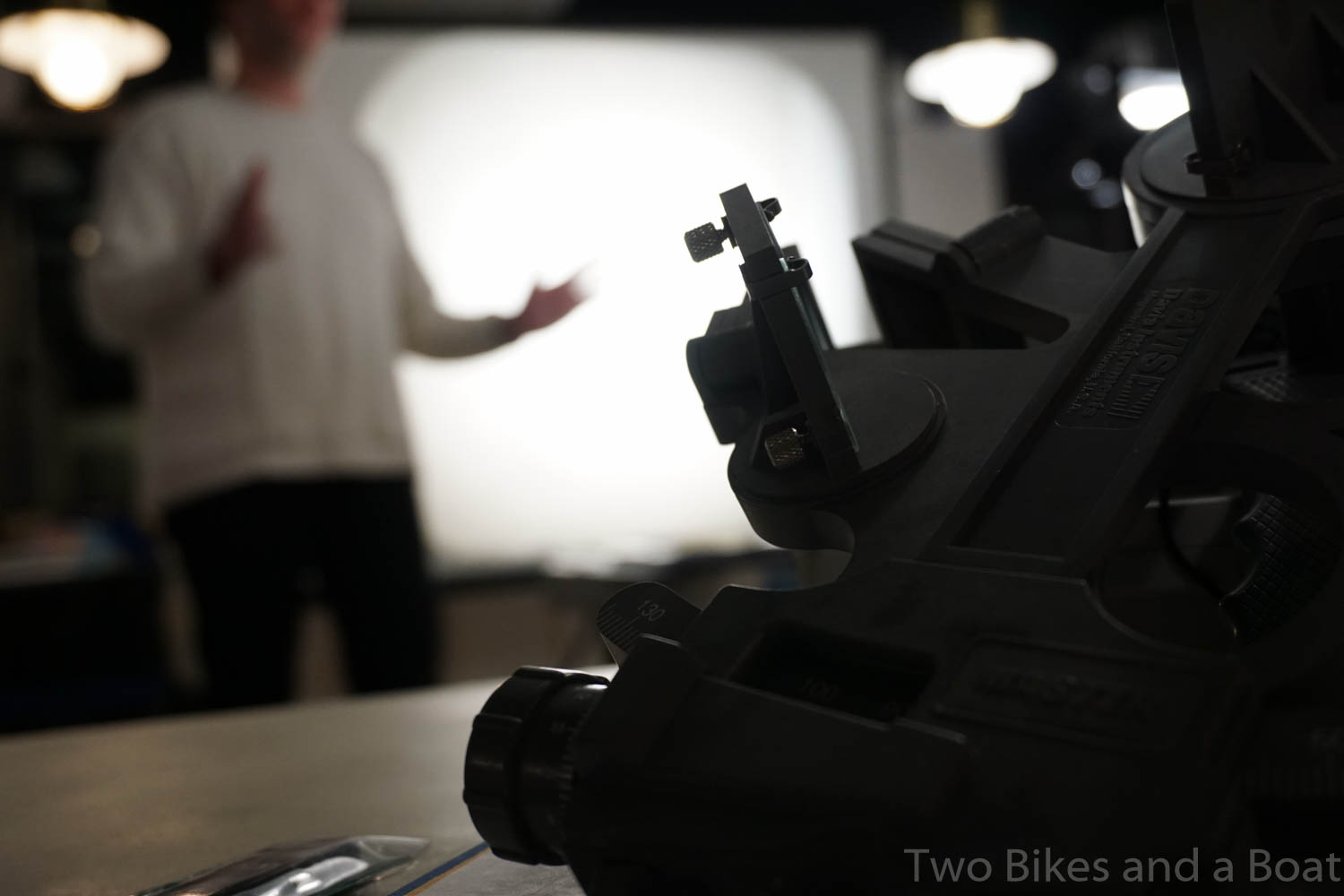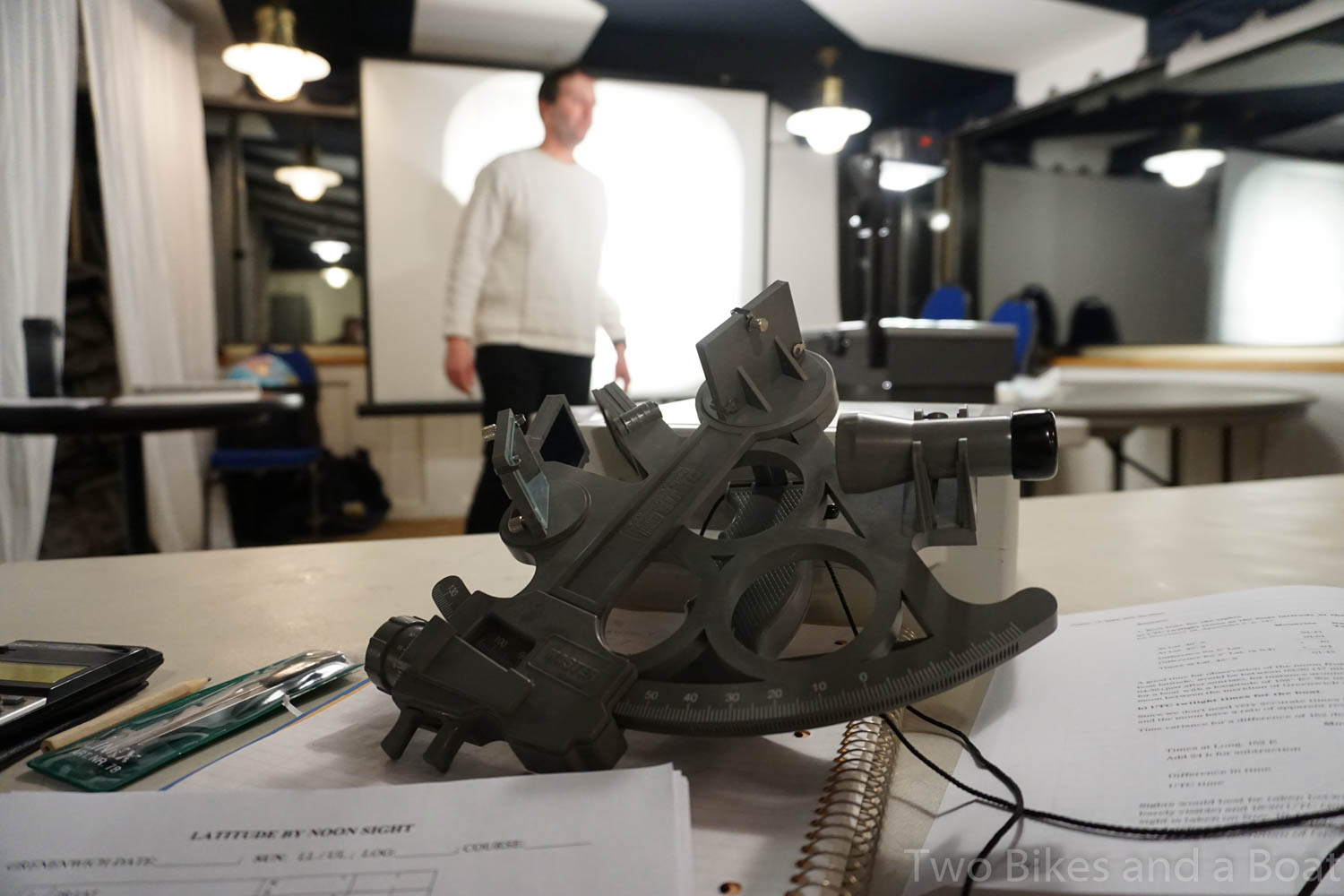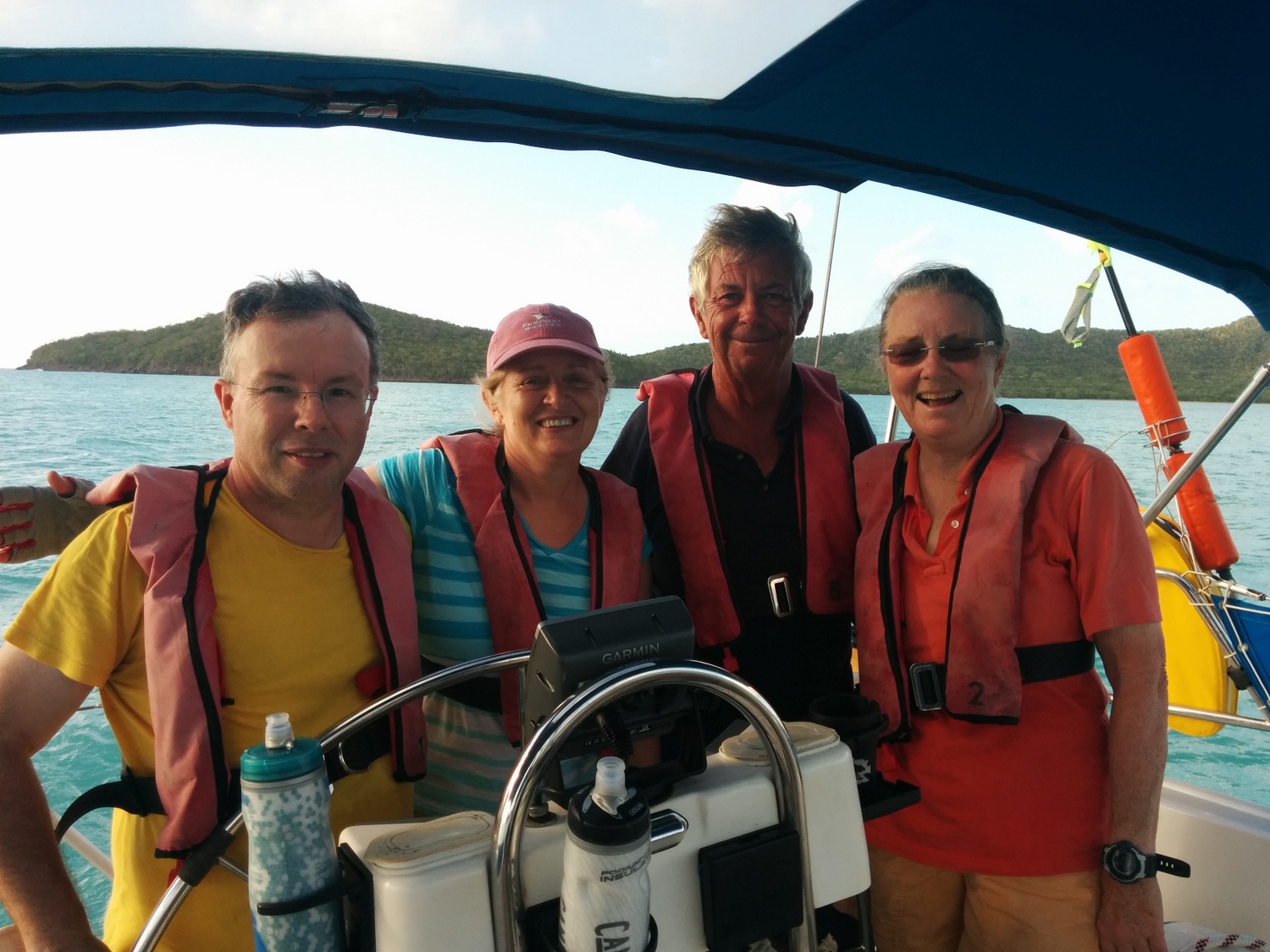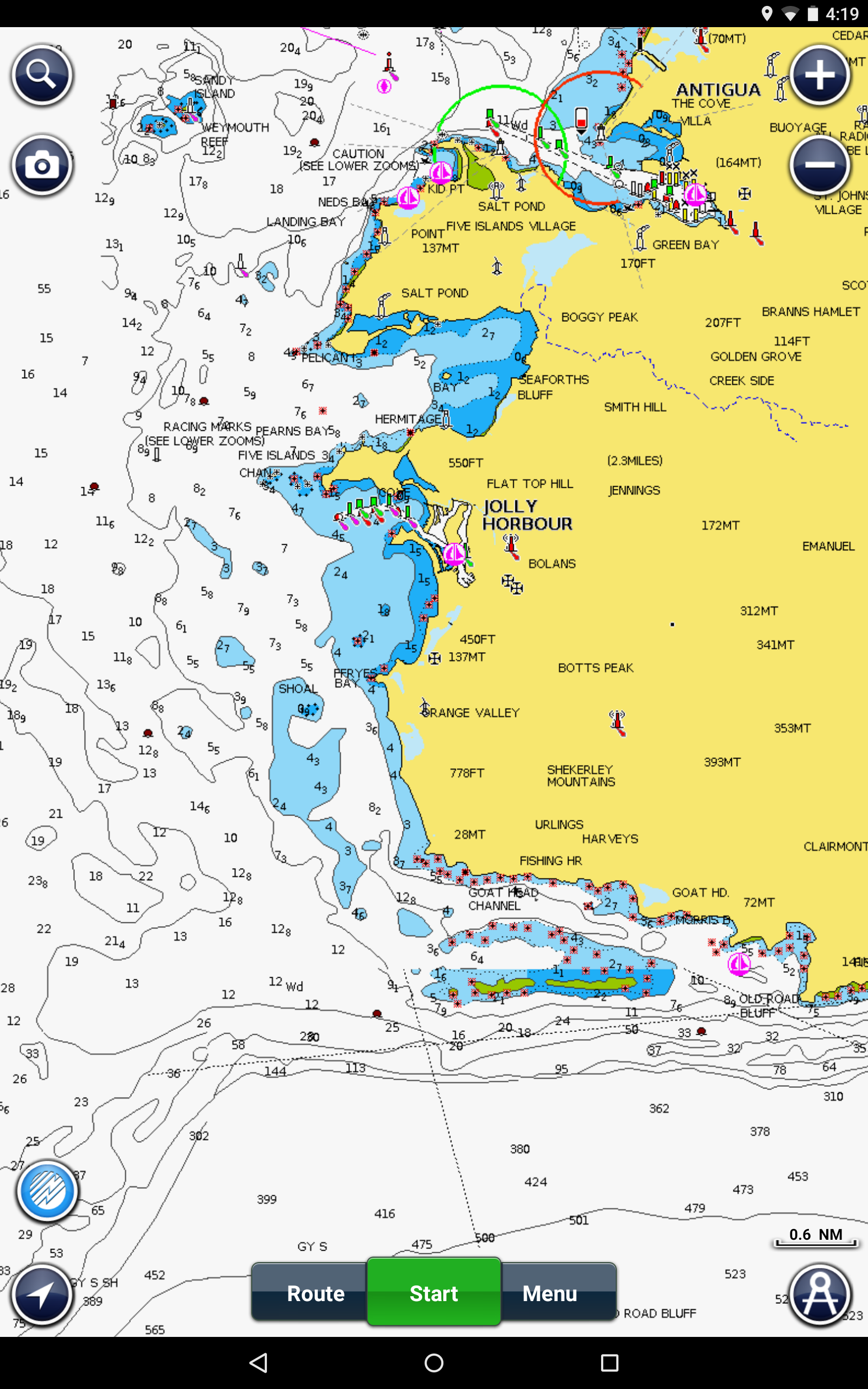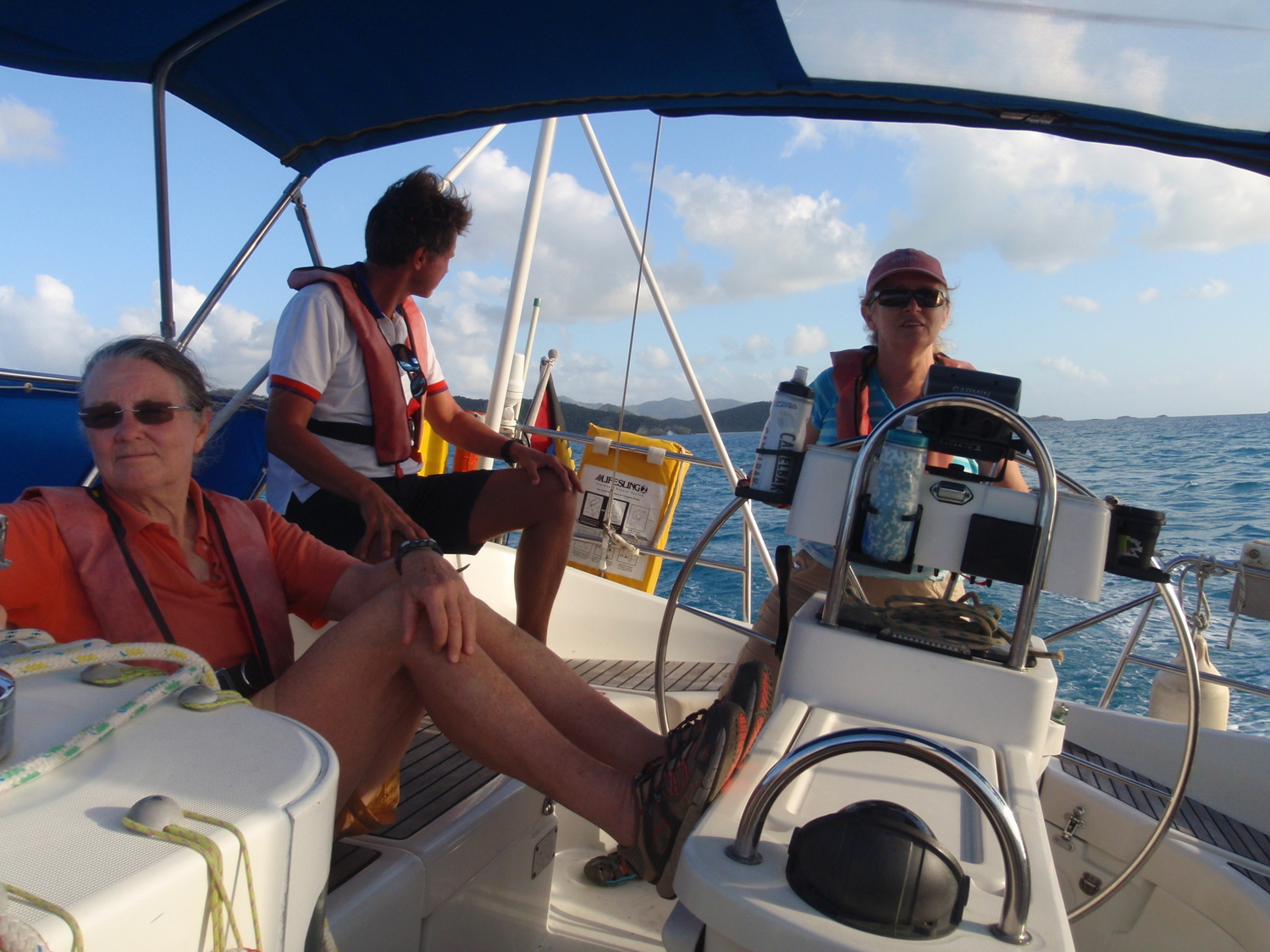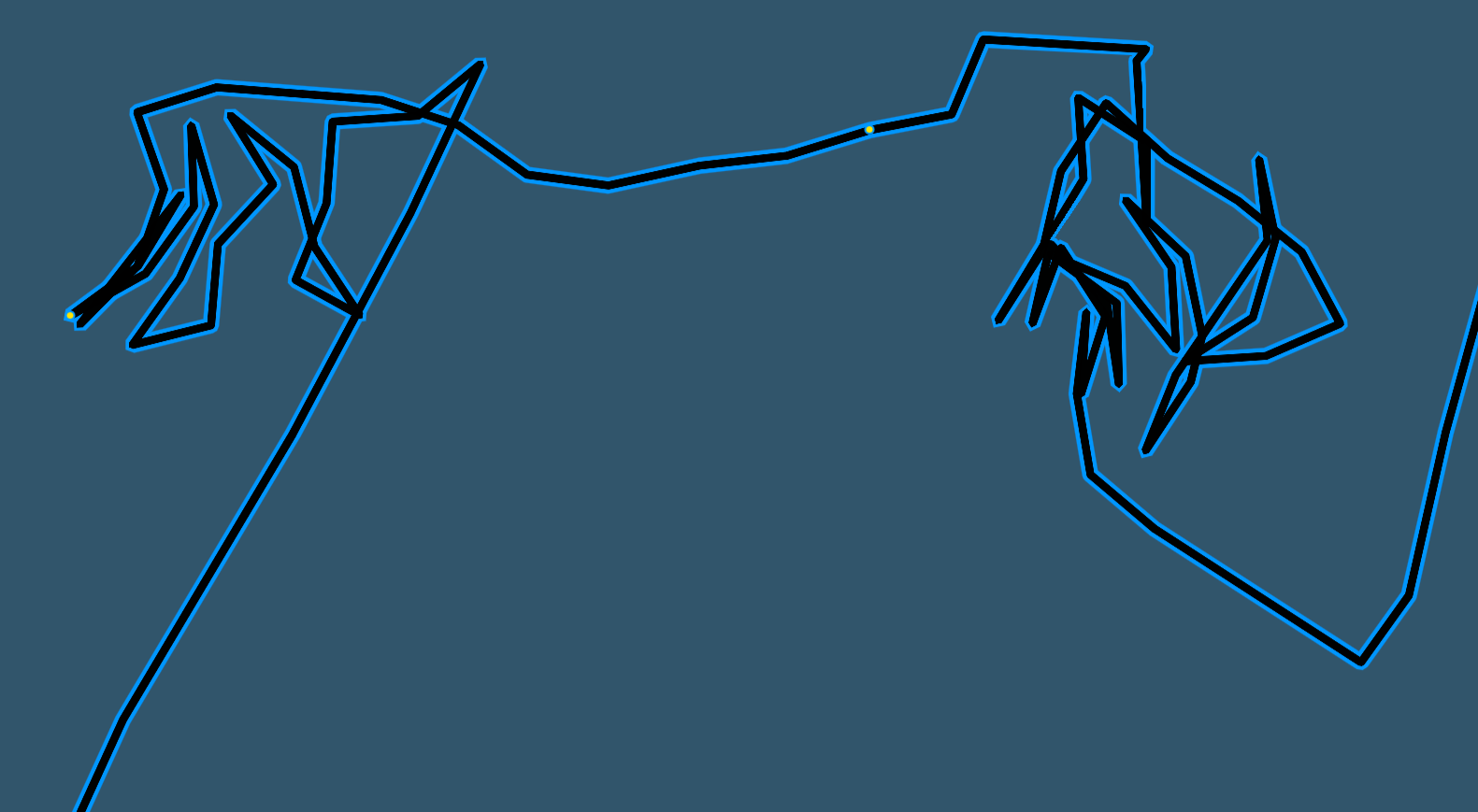Sailing a boat is an easy skill, you can stick a kid in an Opti, explain a couple of key ideas so they can go up wind and watch them teach themselves. Sure, some of them are going to end up downwind and need a tow back, but an afternoon or two they will get it. That said, sailing a boat well and safely over long distances is a life long learning experience. The progression is continuous, I can’t remember what it was like not to be able to sail, but I still see the ocean of knowledge and skills I need to improve or acquire.
The course in Antigua was really eye opening for me. I have not done any practical training for about 10 years and being coached by good instructor was interesting mix of dealing with my bad habits and checking where my skills are on the RYA scale and then working out what is needed to improve them. One of the real benefits of the course was practising things that we don’t normally use in the day to day of our boat. Other than Man over Board drills, using manual coastal navigation techniques on board was great fun and a real challenge. We have spent a lot of time in the familiar waters of the Ottawa River and Kingston Harbour and when we venture further, we review the paper charts, but all the navigation happens on the chart plotter.
Over the last couple of winters we have done a course or two to allow us to round out our skills, the previous 2 winters were on safety, this year in was navigation. Long before we came up with the idea of our course in Antigua, we looked at available classroom courses here in Ottawa through Advantage Sailing. Kathleen chose Coastal Navigation which is a natural next step for her. Not wanting to be left out, I decided to take Celestial Navigation.
Coastal Navigation is a tough course and Kathleen has been working hard, I am sure she will do well in the upcoming exam. She was far enough into her course before we went to Antegua that the work she did for her Day Skipper qualification was just an extension of the classroom work.
I took Celestial Navigation mainly for fun, but it turns out that the RYA requires sea sights and reductions for Yachtmaster Ocean, so now I am keeping my eyes open for a sextant to add to Kinship’s navigation gear.
Learning to use the sextant is a real history lesson, a skill that dates back over 250 years. Before the development of reliable and accurate clocks, navigation was far more of an art than a science. It was not until Cook’s time that there was an accurate method of finding longitude and this method of sextant, clock and astronomical tables has not changed much since. John Harrison’s work on solving the problem of finding longitude at sea in the 18th century underpins all celestial navigation today. If it is hard to understand a world without GPS now, imagine a world where all you had was a latitude and ded reckoning. There is a great book by Dava Sobel and a TV mini series both called Longitude that details the incredible technical and political obstacles that Harrison had to overcome to prove his timekeepers.
https://youtu.be/ecrf8KhVcyo

